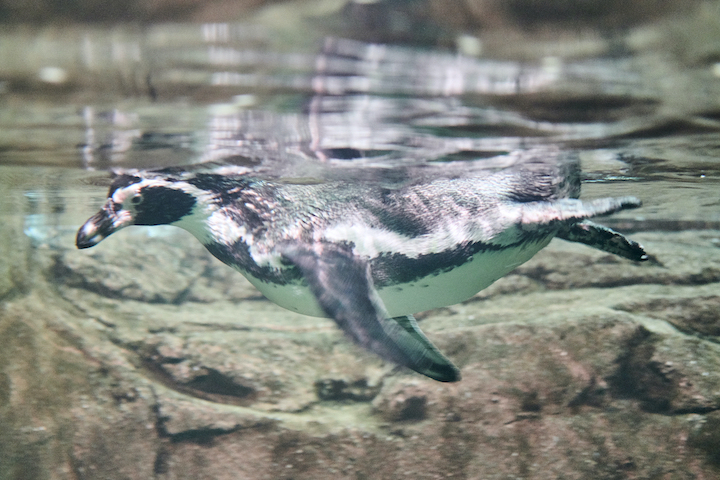Featured News - Current News - Archived News - News Categories
Funding to update aging water infrastructure, combat harmful algal blooms, protect drinking water & prevent potential contamination
Gov. Kathy Hochul announced approximately $110 million was awarded to 86 projects through two grant programs to improve water quality across the state.
Her team said, “The grant programs support projects that will help protect drinking water, combat contributors to harmful algal blooms, update aging water infrastructure, and improve aquatic habitat in communities statewide, with more than $90 million of the funding supporting water quality improvements in environmental justice communities that have been disproportionately impacted by environmental pollution.”
Hochul said, "New York continues to provide historic levels of financial support to ensure all New Yorkers have access to clean water for generations to come. We will continue upgrading New York's aging infrastructure and strengthening our water security – improving the quality of life and public health of communities across the state."
The $110 million in grants were administered by the New York State Department of Environmental Conservation, with more than $108 million going to 51 projects through the state's Water Quality Improvement Project (WQIP) program, and nearly $2 million going to 35 projects through the Non-Agricultural Nonpoint Source Planning and Municipal Separate Storm Sewer System Mapping Grant (NPG).
A press release said, “New York state continues to prioritize funding for projects that may help decrease the occurrence of harmful algal blooms (HABs). Nearly half of the WQIP and NPG awarded grants, totaling approximately $45 million, will support projects in watersheds known to have experienced HABs in the past five years and/or help implement a project identified in a DEC HABs action plan.
NYS DEC Commissioner Basil Seggos said, "Gov. Hochul continues to demonstrate her commitment to improving water quality; I know how important it is to her. She recognizes that we can't sustain the health of our communities and environment without access to clean water. The grants announced today will help communities across the state safeguard our drinking water so families know they have access to something that's not a privilege, but a human right."
The WQIP grant program funds projects that directly improve water quality or aquatic habitat, or protect a drinking water source. Supported in part by the state's Environmental Protection Fund (EPF) and Clean Water Infrastructure Improvement Act funding, WQIP projects include municipal wastewater treatment upgrades, non-agricultural nonpoint source abatement and control, land acquisition projects for source water protection, salt storage construction, aquatic connectivity restoration, and marine habitat restoration.
The NPG program funds projects that help pay for the initial planning of non-agricultural nonpoint source water quality improvement projects, such as undersized culvert replacements and green infrastructure technologies; and state permit-required storm sewer mapping in urban areas.
Hochul’s team said, “When implemented, these projects will reduce the amount of polluted stormwater runoff entering lakes, rivers and streams, and improve resiliency against climate impacts. This grant is supported by the state's EPF, which Gov. Hochul's 2023-24 executive budget sustains at a historic $400 million. The EPF provides funding for critical environmental programs such as land acquisition, farmland protection, invasive species prevention and eradication, enhanced recreational access, water quality improvement, and an aggressive environmental justice agenda.”
The full list of awardees can be found at https://www.dec.ny.gov/pubs/4774.html for WQIP and https://www.dec.ny.gov/pubs/116725.html for NPG. Examples of the 51 projects funded in this round that highlight the breadth and scope of WQIP awards include:
•Buffalo Sewer Authority – $10 Million for Wastewater Treatment Infrastructure, Combined Sewer Overflow/Sanitary Sewer Overflow Pollution Reduction (water improvement): Buffalo Sewer Authority will improve wastewater treatment equipment at the Bird Island Wastewater Treatment Facility, including rehabilitating primary sedimentation tanks and associated sludge pumping and piping, and installing a new disinfection facility. This project will provide a higher level of primary treatment for wet weather flows through the facility, and improve the quality of water entering the Niagara River. This builds upon the announcement in October that construction began on the wastewater improvement project at Bird Island Wastewater Treatment Facility.
•Chautauqua County Soil and Water Conservation District – $432,555 for Streambank/Shoreline Stabilization (nonpoint source abatement): The Soil and Water Conservation District will implement stream grading, and vegetative buffers at multiple locations in Chautauqua County. The project will reduce erosion, sediment and nutrients in the Chautauqua Lake watershed.
•Allegany County Soil and Water Conservation District – $30,000 for Streambank/Shoreline Stabilization (nonpoint source planning reports): The Soil and Water Conservation District will complete a streambank stabilization survey and engineering design plan to stabilize an eroding streambank in the Town of Caneadea. The project will reduce the erosion of nutrients into the Genesee River and protect infrastructure in the area.
New York's Commitment to Clean Water
Hochul’s team said, “New York continues to increase its investments in clean water infrastructure. Most recently, in the 2023 State of the State and executive budget, Gov. Hochul proposed investing an additional $500 million in clean water funding, bringing New York's total clean water infrastructure investment to $5 billion since 2017. To leverage these investments and ensure ongoing coordination with local governments, the governor proposed the creation of community assistance teams to provide proactive outreach to small, rural and disadvantaged communities to help them access financial assistance to address their clean water infrastructure needs. The initiative was recently launched and outreach meetings are underway.” For more information, go to https://efc.ny.gov/CAT.
The press release continued, “In addition, voters approved the $4.2 billion Clean Water, Clean Air, and Green Jobs Environmental Bond Act in November 2022, advancing additional, historic levels of funding to update aging water infrastructure and protect water quality, strengthen communities' ability to withstand severe storms and flooding, reduce air pollution and lower climate-altering emissions, restore habitats, preserve outdoor spaces and local farms, and ensure equity by investing at least 35% (with a goal of 40%) of resources in disadvantaged communities.”
About the Consolidated Funding Application
The grants announced here were issued following completion through the consolidated funding application process.
The press release noted, “The CFA was created to streamline and expedite grant applications, and marks a fundamental shift in the way state resources are allocated, ensuring less bureaucracy and greater efficiency to fulfill local economic development needs. The CFA serves as the single-entry point for access to economic development funding, ensuring applicants no longer have to slowly navigate multiple agencies and sources without any mechanism for coordination. Now, economic development projects use the CFA as a support mechanism to access multiple state funding sources through one application, making the process quicker, easier and more productive.” Learn more about the CFA here.





























